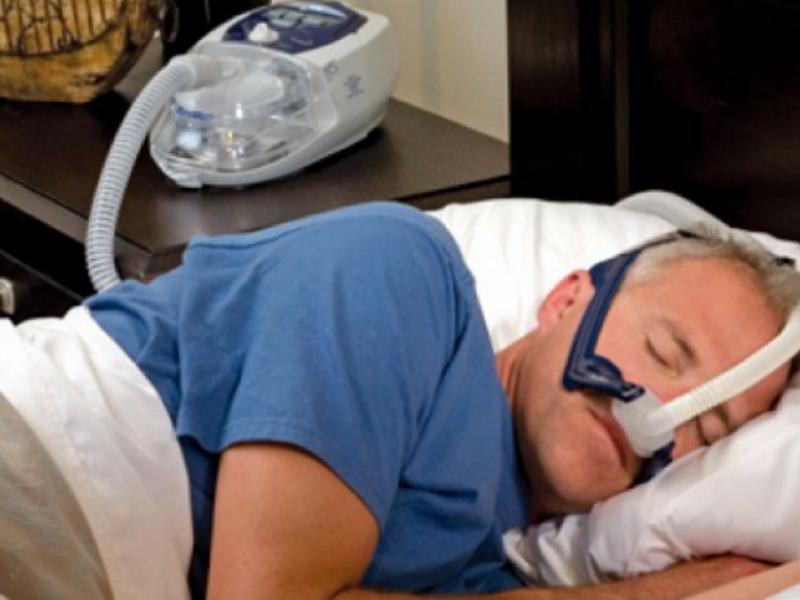Sleep apnea is a common disorder that is often associated with snoring. Unlike simple snoring, in which the walls of the throat vibrate, sleep apnea causes a complete collapse of the airway, temporarily blocking the passage of air. This obstruction sends a warning signal to the brain, which immediately responds by increasing breathing rate and oxygenation, interrupting sleep.
In Turkey, there are personalized medical solutions to treat this syndrome (SAHOS). Depending on the severity of the symptoms, specialists offer customized treatments to restore restful sleep.
Best Clinics with Verified Reviews

- Multispecialized hospital
- 7 operating rooms
- Capacity é of 170 beds

What is sleep apnea?
Sleep apnea is a disorder that causes involuntary pauses in breathing during sleep that last more than 10 seconds and occur several times a night. This phenomenon results in a lack of oxygen in the body, which affects the quality of rest and overall health.
There are three different types of sleep apnea:
- Central sleep apnea (CSA): This disorder occurs when the brain does not properly send the signals needed to breathe during sleep.
- Obstructive sleep apnea (OSA): The most common type, caused by a blockage in the upper airway. Air cannot circulate freely, forcing the body to work harder to breathe.
- Mixed apnea: A combination of the previous two types that requires specialized, individualized treatment.
If you suffer from sleep disorders, it's essential to consult a specialist to avoid long-term complications. Discover the best clinics in Turkey offering advanced treatments for sleep apnea and get back to restful sleep!
Causes of sleep apnea
Sleep apnea is a complex respiratory disorder that is often caused by multiple factors that contribute to narrowing of the upper airway. Although there is no single cause, certain factors can increase your risk of developing the condition, including:
- Being overweight: Being overweight puts pressure on the airways, increasing the risk of obstruction.
- Alcohol consumption: Alcohol relaxes the muscles in the throat, making it harder to breathe at night.
- Smoking: Smoking increases inflammation in the airways, making obstruction more likely.
- Sedatives: Some medications, such as sleeping pills, can relax your throat muscles and cause pauses in your breathing.
If you have symptoms of sleep apnea, it's important to see a doctor for an accurate diagnosis. Contact us now to be referred to the best clinics specializing in the treatment of sleep disordered breathing in Turkey.
Common symptoms of sleep apnea
Sleep apnea can disrupt your daily routine in subtle but significant ways. The most common symptoms include:
- Loud snoring: Regular loud noises during sleep are a classic sign.
- Frequent nighttime awakenings: Your sleep is often fragmented, preventing you from achieving restorative sleep cycles.
- Morning headaches: Waking up with a persistent headache may be a sign of sleep apnea.
- Dry mouth and sore throat: These symptoms are often associated with breathing through the mouth during sleep.
- Excessive daytime sleepiness: Feeling tired and sleepy even after a good night's sleep.
- Concentration and memory difficulties: Lack of restful sleep can affect your cognitive abilities.
Available treatments of sleep apnea in Turkey
Sleep apnea can be effectively treated with medical and surgical options at renowned clinics in Turkey at competitive prices. Learn more about the different solutions available to resolve this disorder and improve your quality of life.
Medical Therapy: CPAP (Continuous Positive Airway Pressure)
One of the most common solutions for treating sleep apnea is CPAP, which involves the use of a nasal mask connected to a device that provides a constant flow of air. This treatment prevents relaxation of the upper airway and prevents pauses in breathing. Although the mask may seem uncomfortable at first, most patients adapt quickly and results are visible after evaluation by polysomnography.
Surgical therapy: phonosurgery
In some cases, surgery is needed to correct upper airway abnormalities. Phonosurgery uses advanced techniques such as laser, ultrasound, or radiofrequency to remove or modify the parts of the airway that are obstructing breathing. However, this approach often needs to be accompanied by lifestyle changes such as weight management, smoking cessation, and dietary changes to achieve the best results.
Lifestyle changes for better sleep
Here are some simple lifestyle changes that can significantly improve your sleep apnea symptoms, and may even eliminate the need for surgery in some cases:
- Weight Loss: Even a moderate amount of weight loss can open up your airways and improve breathing.
- Smoking Cessation: Smoking irritates your airway and worsens sleep apnea. Quitting smoking is crucial for overall health and better sleep.
- Limiting Alcohol: Alcohol acts as a muscle relaxant, which can worsen airway collapse during sleep.
- Avoiding sleep medications: Certain medications can cause drowsiness and worsen sleep apnea. Talk to your doctor about alternative options.
- Sleeping position: Avoiding sleeping on your back can help keep your airway open.
By working with your doctor in Turkey, you can find the most effective treatment plan to manage your sleep apnea and achieve a good night's sleep.
Share this page






